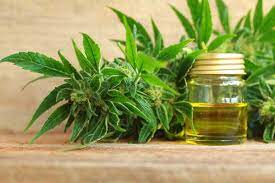What Are The Legal Laws Of Producing And Selling CBD In Canada?
How CBD Can Be Regulated In Canada?
 CBD is classified as a restricted substance under UN drug control accords. CBD is a restricted substance in Canada and other jurisdictions, which is consistent with its worldwide position.
CBD is classified as a restricted substance under UN drug control accords. CBD is a restricted substance in Canada and other jurisdictions, which is consistent with its worldwide position.
As a result, CBD and CBD-containing products are subject to all of the Cannabis Act’s and regulations’ laws and regulations that apply to cannabis. CBD obtained from industrial hemp plants, as well as CBD derived from other cannabis species, fall under this category. Unless approved, actions involving phytocannabinoids (including CBD) are banned under the Cannabis Act. CBD was regulated under the Controlled Drugs and Substances Act before the Cannabis Act went into effect (strictly controlled). Producing, selling, importing, or exporting CBD was illegal unless it was for medicinal or scientific purposes.
CBD products are highly controlled under the Cannabis Act and are only lawful when sold in accordance with the Act and its regulations. Cannabis is subject to rigorous restrictions under the Act and its supporting regulations:
- Production
- Distribution
- Sale
- Possession
The manufacture of cannabis products is regulated by Health Canada. In addition, Health Canada is in charge of monitoring the distribution and sale of:
- Cannabis for medicinal uses, including CBD-containing cannabis products
It is up to the provinces and territories to decide how cannabis is supplied and sold inside their borders.
They establish guidelines for:
- the manner in which cannabis goods can be sold
- Possible store locations
- how stores should be run
Producing and selling CBD in Canada
CBD and CBD-containing products are subject to all of the Cannabis Act’s and regulations’ laws and regulations that apply to cannabis. No matter where the CBD comes from, you’ll need a processing license to make CBD-infused items for sale.
CBD and CBD-containing goods, like as cannabis oil, can only be purchased from a:
- Provincially or territorially licensed cannabis shop
- A federally licensed cannabis dispensary for medical purposes
Importing and exporting industrial hemp in Canada
The Industrial Hemp Regulations allow for the import and export of industrial hemp seed and grain, but not flowering heads, branches, or leaves.
Under the Cannabis Regulations, only a license holder may import or export flowering heads, branches, or leaves.
- with a permission obtained in accordance with those rules
- for medical and scientific research objectives
To import or export industrial hemp seeds or grain, you must meet the following requirements:
- have a Health Canada license
- possess a Health Canada import or export permit
You may need to get an import or export permission from the other nation when importing or exporting industrial hemp seeds or grain, depending on their restrictions.
CBD in natural health products, veterinary health products and cosmetics in Canada
Only some portions of the cannabis or hemp plants are allowed to be used in: • natural health products (NHPs) (under the Natural Health Product Regulations)
VHPs are veterinary health products (under the Food and Drug Regulations)
NHPs and VHPs can only contain portions of cannabis and hemp plants that aren’t classified as cannabis under the Cannabis Act or are exempt from the Act’s applicability. This covers items like:
 infertile seeds
infertile seeds- hemp seed derivatives that adhere to the Industrial Hemp Regulations
- Mature stalks with no leaves, flowers, seeds, or branches, as well as the fiber from such stalks, are exempt from the Cannabis Act, although they cannot be utilized in veterinary health products.
Adding phytocannabinoids to such goods on purpose is prohibited. Cosmetics, which may only include hemp derivatives, are subject to the same regulations.
